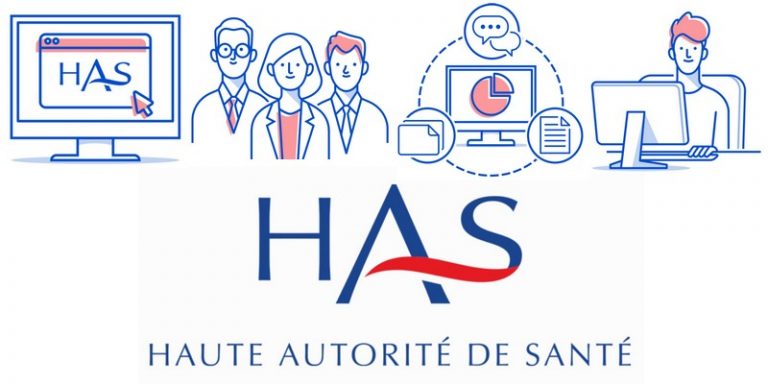
On a daily basis, healthcare professionals collect, compile and manipulate a significant amount of data. With the aim of better exploiting data to understand practices, the French National Authority for Health is launching a strategy on the use of data for the period 2021-2024. The roadmap includes four main axes: better mastering the HAS data assets, better exploiting health data to monitor practices, providing tools for processing textual knowledge, integrating into the health and social data ecosystem.
Better control of the HAS data assets
The first point concerns better use of HAS data such as the results of certification of health care institutions, evaluation of social or medico-social institutions and services, or opinions on health products. The data culture will be developed within the institution and the HAS actors will be trained to acquire skills that will serve as a basis for the whole strategy.
A data platform will be created to automatically process source data and analyze it for specific studies, then disseminate it through new tools and uses. The database behind the Scope santé website will be overhauled, a new tool (Adex project) will be developed to search for and select external experts, and data will be analysed to design the future accreditation platform for bodies in charge of evaluating social and medico-social establishments and services.
Pierre-Alain Jachiet, head of data strategy at the HAS, explains the challenges of this first axis:
“The challenge is to have excellent control over our data assets, to know how to manage them electronically and to be able to exploit them for different uses: analyses, dashboards, data visualizations, etc. We are going to move forward brick by brick, setting up several projects that will ultimately enable us to build this platform.”
Making better use of health data to monitor practices
The second axis focuses on “observational” data. These are data from current practice, not from clinical studies. Pierre-Alain Jachiet mentions them while explaining the future work that will be carried out around them:
“They are useful for contextualising our work, by knowing more about the use of the treatments studied or their comparators, the patient populations concerned, etc. We will be able to use them more extensively to feed our productions, in addition to the literature and expert opinion. Finally, they are essential for evaluating practices and monitoring the impact of our recommendations on practices. We will start with simple elements, such as a query portal on the open data published by the Health Insurance from the National Health Data System (SNDS). Eventually, the challenge is to know how to drive the observational studies we need and develop an in-depth critical look at those submitted to us.”
Tools for processing textual knowledge
This third axis is concerned with the exploitation of textual knowledge. The use of automated language processing is in the sights of the HAS as Pierre-Alain Jachiet mentions in his remarks:
“The HAS manipulates and produces a lot of knowledge in the form of texts. Today, all this work is done without any particular tools, or is not done when the volume is too great. It is important to create tools to assist in text analysis.”
The e-Satis project, for example, focuses on the comments left by patients after their hospitalization to better take into account the topics that matter to users of the care system. During the fall of 2021, a hackathon will be organized to prototype new uses for the texts of all HAS productions.
Integrating into the health and social data ecosystem
The last axis focuses on integration into the health data ecosystem and its internal and external structuring. Data is an eminently transverse and collaborative subject. It is essential for the HAS to structure the subject internally (exchanges, training, etc.) and to integrate into the network of actors producing and using health and social data: the HAS considers that it has an important role to play as an independent scientific authority.
Pierre-Alain Jachiet states:
“Despite the high confidentiality of the data considered, it is crucial to identify what can be shared in terms of tools, data and methods.”
To successfully implement these four axes, the HAS has recruited to strengthen its network of data experts: Pierre-Alain Jachiet as head of strategy, Matthieu Doutreligne who is doing a PhD in cotutelle with the National Institute for Research in Computer Science and Automation (Inria) on the usefulness of health data warehouses to measure treatment effects, Timothée Chehab as engineer in charge of the HAS data platform, Thibault Ledieu as engineer specializing in massive data in health and soon and Pavel Soriano as head of data science specializing in automatic language processing.
Translated from La Haute Autorité de Santé dévoile sa stratégie 2021-2024 sur l’usage des données de santé









